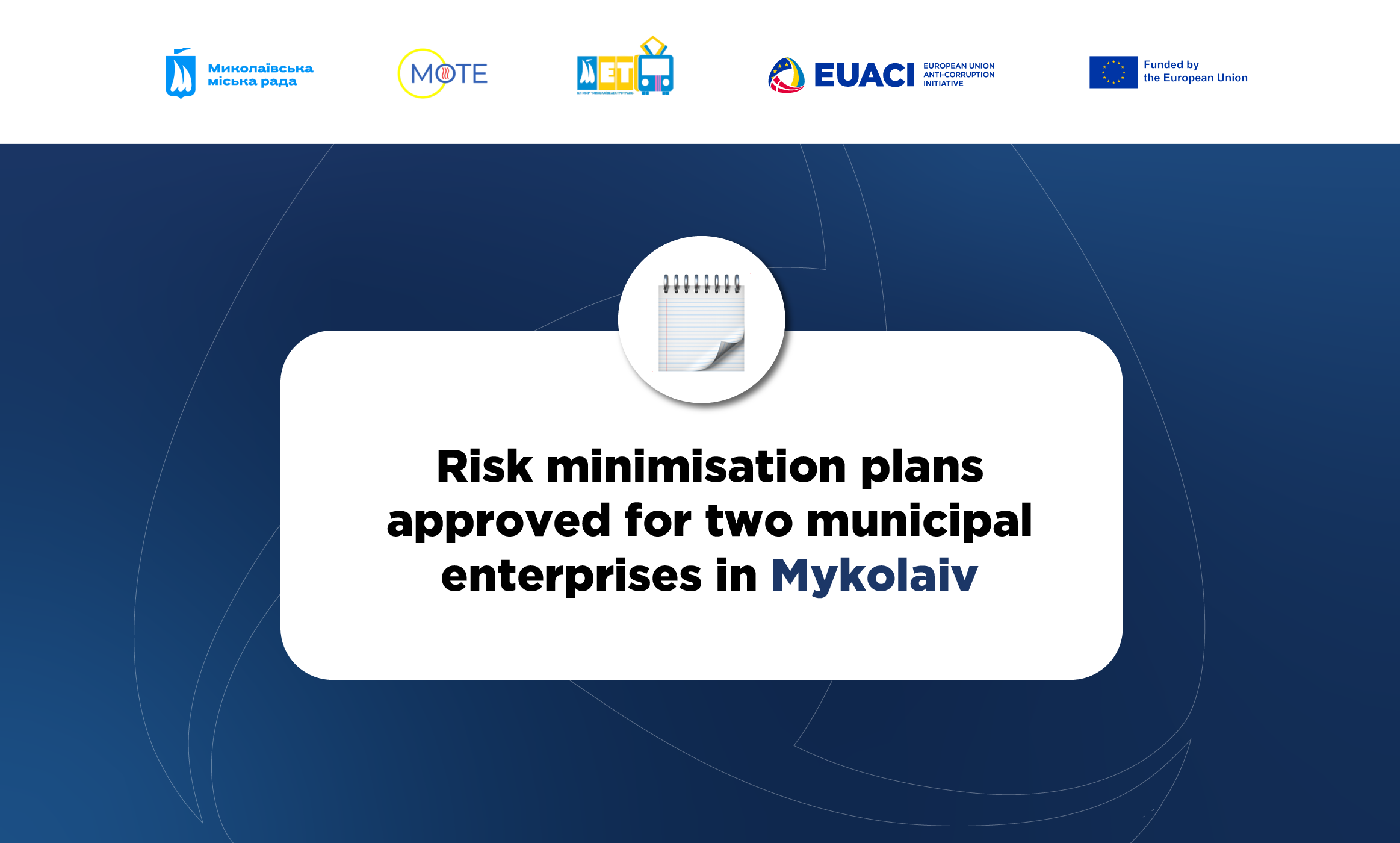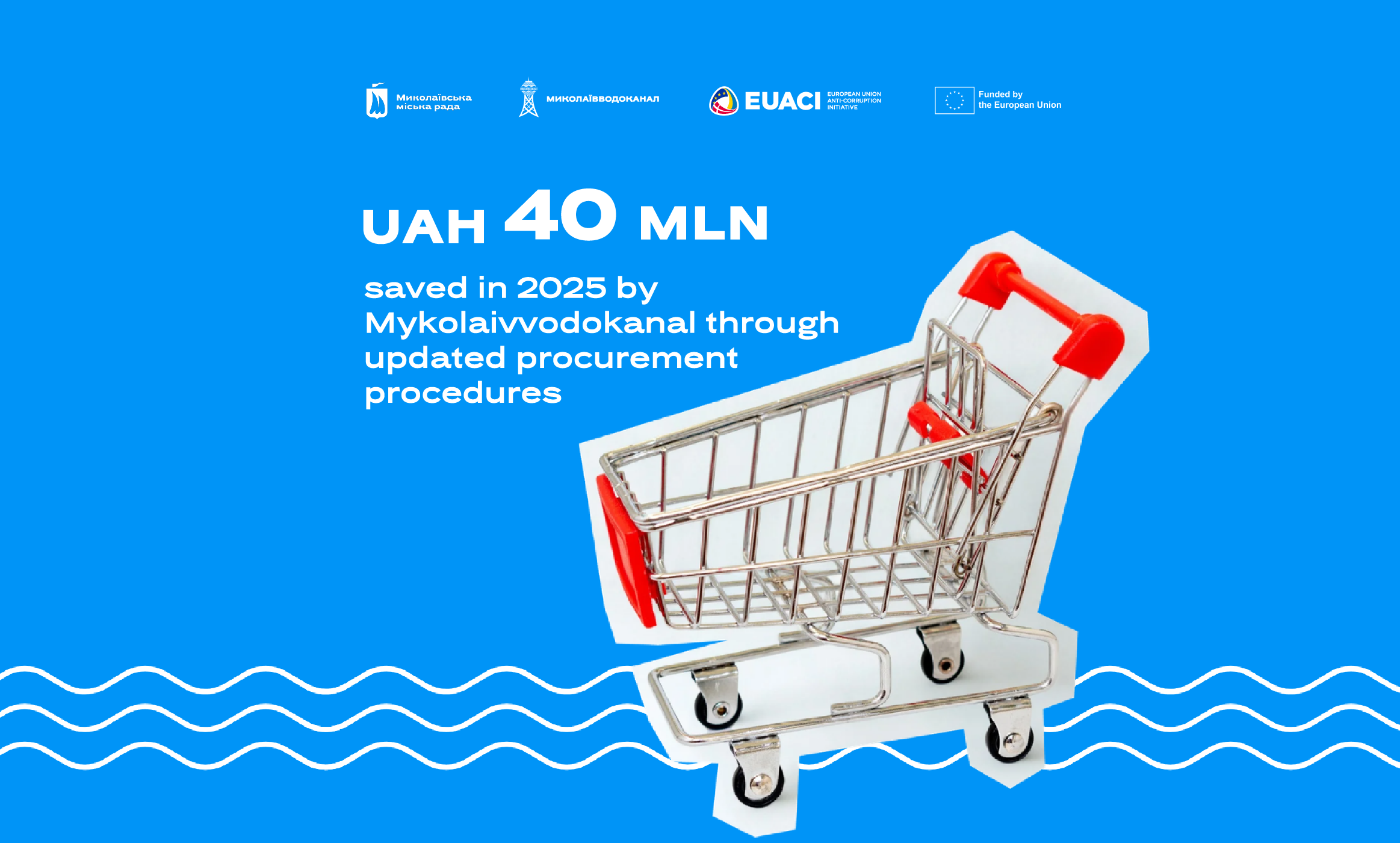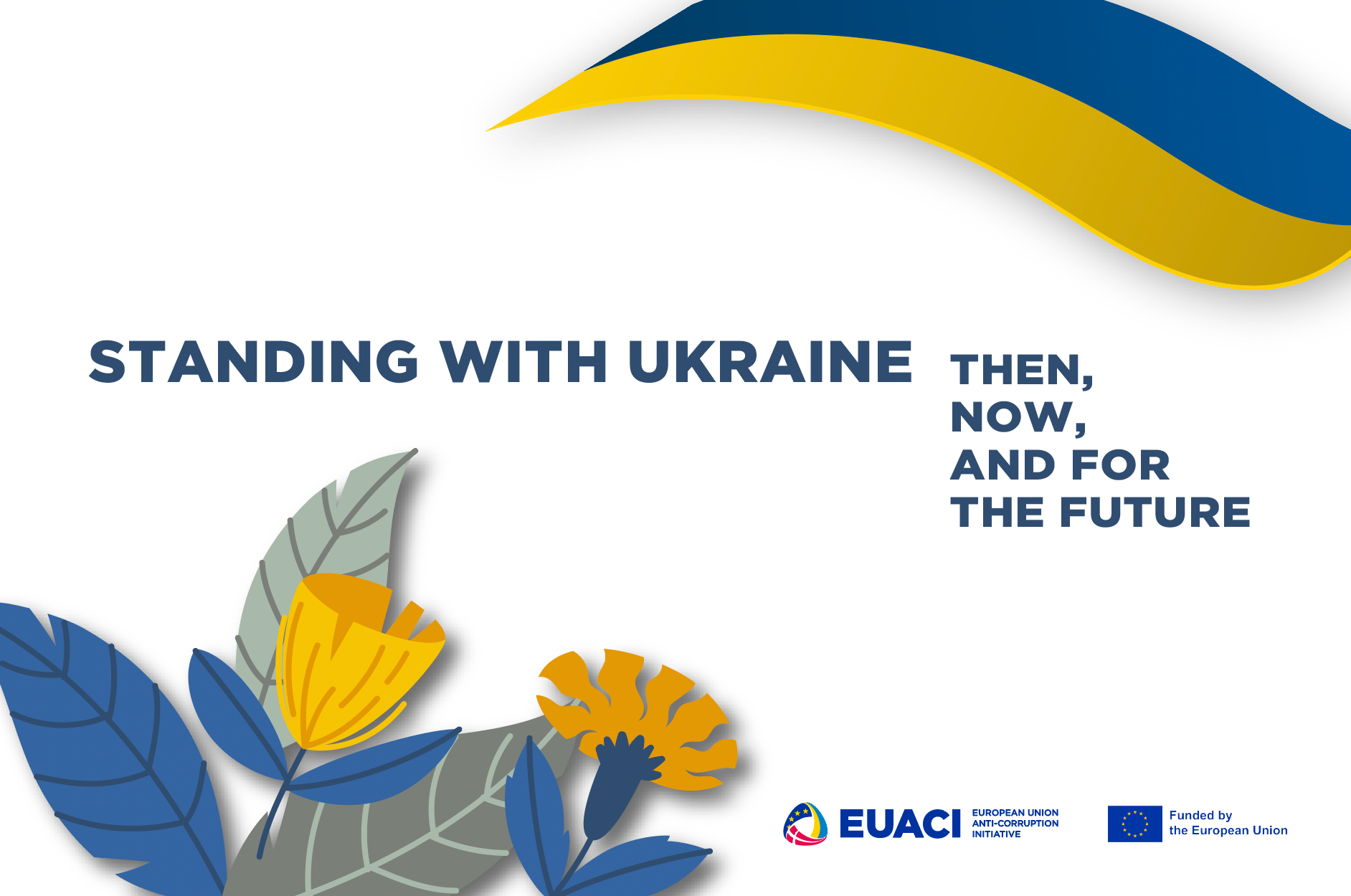As the full-scale war against Ukraine continues, the daily struggle brings us closer to the cherished day of victory. That is why the Ukrainian government and civil society are already developing plans for the recovery and reconstruction of Ukraine. To address the question of how to ensure integrity, transparency and accountability during reconstruction process the EU Anti-Corruption Initiative organized the public discussion “Accountability in Reconstruction: International Experience and the Case of Ukraine” on June 29, 2022.
The event was opened by Head of EUACI Allan Pagh Kristensen with a minute of silence to honor all those fallen in the ongoing war.
The seminar is about looking ahead to reconstruction of Ukraine after the destruction caused by Russia’s aggression. Ukraine has a great potential and if we do the reconstruction right there is no reason why Ukraine should not be successful on its path towards the EU and in transforming and modernizing its society.
Flemming Møller Mortensen, Minister for Development Cooperation of Denmark started the first discussion panel on the challenges and opportunities of reconstruction. Minister pointed out that:
Reconstruction is going to be an enormous challenge for Ukraine and for our international society because we all want to assist in the right way. The lessons we learned from other nations are not all positive. The Western Balkans provide evidence of things that went wrong(…) One key aspect was neglecting accountability and transparency early in the reconstruction. We should not allow to happen that in Ukraine.
He expressed regret over the tragedy in Kremenchuk and Mykolaiv the day before, and added:
Our ambition is to create a model of success for reconstruction Mykolaiv that might inspire other cities throughout Ukraine.
The discussion was resumed by Ivan Lukeria, Deputy Minister for Communities and Territories Development of Ukraine. He mentioned that
The challenges Ukraine and the entire civilized world is facing now are unprecedented since the Second World War, but at the same time they are an opportunity to show the unprecedented scale of reconstruction and modernization.
In his report, Ivan outlined the extent of the destruction, pointing out that the civilian infrastructure had suffered the most.
According to our calculations, in cooperation with the World Bank, the damage is estimated at a total of more than $105 billion. But despite the damage, the authorities do not give up hope for effective reconstruction: The key principle of reconstruction that we lay down is to build back better.
Katarina Mathernová, Deputy Director General at DG Neighbourhood and Enlargement Negotiations (DG NEAR), Head of Support Group for Ukraine, European Commission ended the first panel mentioning, that despite the fact, that the war is still going on, we have to build and reconstruct already now.
In Ukraine you are in a situation when you have to build a car while driving it.
Kateryna also confirmed her conviction in the effective work of Ukrainian institutions:
If [Ukraine] were so incredibly corrupt to the core, as the Russia claims, the country would have fallen as a house of cards. And it did not. Institutions held, they continue to function (…) The institutional resilience in Ukraine has been one of the biggest surprises to those who didn’t know Ukraine well.
She ended her speech by congratulating Ukrainians on receiving the status of EU Candidate:
It is probably the best entering of big reconstruction process, to help Ukraine both walk the European path and modernize itself.
Philippe Le Billon, Professor at the SPPGA and the Department of Geography, the University of British Columbia opened the next panel discussion on the international reconstruction experience, giving the profound dualization of the corruption problem and the ways of its tackling.
He mentioned, that
Post-conflict political system may be a corruption trap.
But even in this situation, according to him, you can achieve a positive result:
Relative success can be achieved by audit and control, financial management, civil society support, media support.
The next word on the lessons and experience learned from reconstruction in different countries held Dr. David Jackson, Senior Adviser, U4 Anti-Corruption Resource Centre. David presented the general principles and areas for further action:
I think we need a new depth to build an accountability. So that means forms of understanding, forms of practice and funding.
He stressed the Importance of prioritizing gender dimensions
This is a real chance for empowerment. Last week Ukraine became the 36th state to ratify the Istanbul Convention which is the framework that seeks to prevent violence against women.
The last panel on the pitfalls and opportunities of reconstruction was started by John Lough, Associate Fellow, Russia and Eurasia Programme, Chatham House, pointing out the long-standig problem of oligarchy in Ukraine.
Ukraine has an underlying governance problem. Corruption is not the cause of that problem, but its symptom.
You [have to] create the institution in particularly in the area of competition, to ensure that the rules are applied (…) Society has the ability from bottom up now to start to question the certain assumptions that were possibly not challenged in the past.
The next speech on the practical dimension and problems of embezzlement during reconstruction was delivered by Anastasia Radina, Head of the Anti-Corruption Committee of the Parliament:
An effective work of the anti-corruption infrastructure is needed in order to have all the fuses, so the cost of a potential theft of public money has to be high, and the responsibility inevitable.
She highlighted, that it is necessary to establish the work of the Specialized Anti-Corruption Prosecutor’s Office and other anticorr bodies.
Finally, Oleksandr Syenkevych, mayor of the city of Mykolaiv got the floor and stated, that
This war can be a very serious way for Ukraine to rethink itself as a state.
He outlined practical actions that should be done in the future for the effective reconstruction of the country. In particular, the regions should have a separate strategic importance for division into special economic zones. To overcome the problem of corruption in the system, in his opinion, an official should not be poorly paid.
The event ended with a non-public discussion by civil society representatives of the challenges that await Ukraine in the process of reconstruction and possible measures to ensure a virtuous process of restoration of Ukraine.
A set of recommendations voiced by the workshop participants will be presented at the URC 2022 in Lugano.
The event is organized by the EU Anti-Corruption Initiative that has expanded their focus of activity with the outbreak of war. In addition to the promotion of the resilience of the anti-corruption infrastructure and strengthening capacities of main anticorruption agents, EUACI focused also on ensuring the integrity of reconstruction.
Watch the whole record of the panel discussion following the link.


